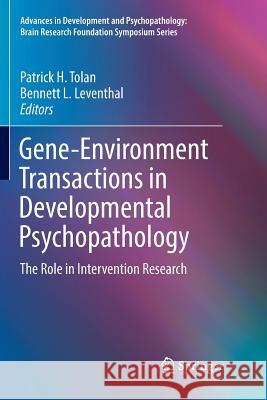Gene-Environment Transactions in Developmental Psychopathology: The Role in Intervention Research » książka
topmenu
Gene-Environment Transactions in Developmental Psychopathology: The Role in Intervention Research
ISBN-13: 9783319841090 / Angielski / Miękka / 2018 / 301 str.
Kategorie:
Kategorie BISAC:
Wydawca:
Springer
Seria wydawnicza:
Język:
Angielski
ISBN-13:
9783319841090
Rok wydania:
2018
Wydanie:
Softcover Repri
Ilość stron:
301
Waga:
0.44 kg
Wymiary:
23.39 x 15.6 x 1.65
Oprawa:
Miękka
Wolumenów:
01
Dodatkowe informacje:
Wydanie ilustrowane











